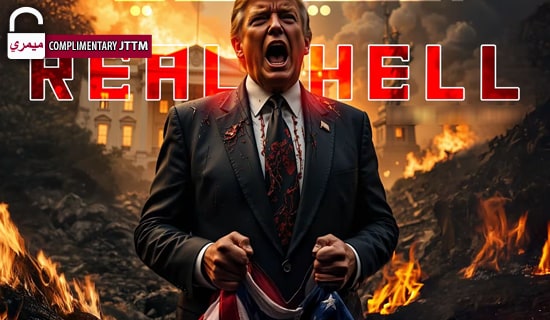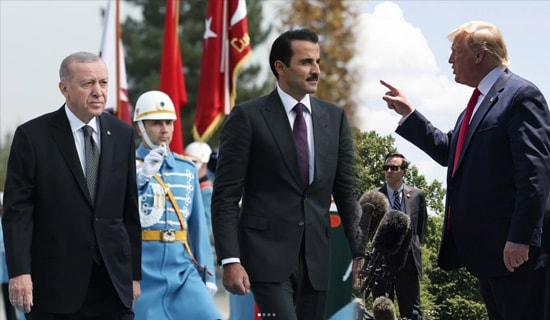In a May 31, 2010 article in Al-Sharq Al-Awsat, 'Abd Al-Rahman Al-Rashed, the paper's former editor and director-general of Al-Arabiya TV, strongly criticized the Lebanese politicians for unanimously supporting Hizbullah's right to arm itself. This criticism is presumably directed mainly at the March 14 Forces, who in the past were strongly opposed to Hizbullah's arms, but who have now changed their position – a move which, according to Al-Rashed, is motivated by personal and political fears.
It should be noted that the March 14 Forces' policy shift is a direct result of Saudi Arabia's rapprochement with Syria. The Saudis, formerly the March 14 Forces' strongest allies, have been pressuring them to comply with the Syrian agenda, forcing them into a national unity government with Hizbullah .[1] This makes Al-Rashed's criticism intruiging, since he is a prominent spokesman for the Saudi regime.
Following are excerpts from the article, published in the English edition of Al-Sharq Al-Awsat:[2]
The Lebanese Politicians "All Expressed Their Support for... Hizbullah Arming Itself"
"The only individual who risked his neck to publicly and explicitly announce his rejection of Hizbullah arming itself was the leader of the Lebanese Forces, Samir Geagea. As for the rest of the Sunni, Shi'ite, and Christian leaders [in Lebanon], whether government officials or [other] politicians, they all expressed their support in one way or another for the issue of Hizbullah arming itself.
"Given the present circumstances, [these leaders'] support of Hizbullah's [armament] is extremely dangerous. However, regardless of this risk, they supported it... [even though] these weapons are a clear violation of the Taif Agreement and of the principle of [the official government's] sovereignty.... even though these weapons are the direct cause for all the devastation wrought upon Lebanon by Israel, and despite the fact that this [armament] is taking place in the name of the resistance, at a time when no Lebanese territory is under Israeli occupation except the [Shaba'] Farms, which [are] still subject to dispute between Lebanon and Syria. They are supporting Hizbullah's [armament] even though everybody knows for [certain] that these are Iranian weapons, and that the order to use them will come from Tehran.
"What is new is that today, supporting Hizbullah's right to arm itself has far more dangerous consequences than usual... for it gives Israel the justification to intensify its military strikes tomorrow. In addition, Lebanese politicians will be unable to object to Hizbullah's right to undertake any action that could bring war upon Lebanon, for they cannot give their blessings to Hizbullah and legitimize its [armament], and then protest its actions.
"Lebanese state officials, the presidency, the government, and the politician[s] are giving Israel the pretext that it needs to launch a possible offensive against the Lebanese army, which has crossed the Litani River and taken up positions opposite the Israelis. Israel has deliberately avoided attacking the Lebanese army because Lebanon says it is not involved in the war [between Hizbullah and Israel] and because Israel knows that the [Lebanese] army does not support Hizbullah. However, today, thanks to the collective blessing given to Hizbullah's [armament], and due to the Lebanese army's presence on the front, around 15,000 poorly equipped Lebanese soldiers are in danger. This is in comparison [with] the Hizbullah militia, which is far larger (around 40,000 fighters) and which possess a communication network, and is heavily armed with a variety of missiles.
"If The War [Were] Confined [to] Hizbullah and Israel, Perhaps the Consequences [of Supporting Hizbullah's Armament]... Would Be Less Dangerous"
"If the war [were] confined [to] Hizbullah and Israel, perhaps the consequences [of supporting Hizbullah's armament]... would be less dangerous... The recent statements [of the Lebanese politicians] have given Hizbullah the right to declare wars, and this is something that gives Israel the pretext to destroy everything that is Lebanese!
"The frightening thing is that there is.... nobody amongst [these politicians], with the exception of the Hizbullah leadership, [who] truly and sincerely supports Hizbullah's right to bear arms. Rather, they are either afraid to say no to Hizbullah, or are agreeing to this for political reasons. Hizbullah's arms are illegitimate... and [yet] Hizbullah's militia and arms [outmatch] those of the State. Hizbullah's arms previously [embroiled] Lebanon in devastating external wars, and [were used] in internal clashes within Lebanon as well. Hizbullah shelled the Sunni districts of Beirut the day it attacked western Beirut, and it also destroyed Druze villages in the mountains.
"Israel doesn't care who [pays] the price in Lebanon so long as they cut Hizbullah's military capabilities down to size, and this [means]... hitting Hizbullah's arsenal whenever [it] exceeds a certain acceptable level. The Israelis believe that if Hizbullah does not care about the consequences of arming itself with missiles and rockets, then they do not care who pay[s] the price... In this scenario, the most likely victim will be the Lebanese people and economy. Hizbullah considers its arms and the right to bear arms a necessity for its continued existence as an ideological party and a political project... We understand Hizbullah's justification for arming itself; however, what are the justifications of the Lebanese politicians who accept this?"
[1] See MEMRI Inquiry & Analysis Series Report No.565, "The March 14 Forces after the Formation of the New Lebanese Government: From Electoral Victory to Political Defeat and Disintegration Within Five Months," November 22, 2009, The March 14 Forces after the Formation of the New Lebanese Government: From Electoral Victory to Political Defeat and Disintegration Within Five Months.
[2] Al-Sharq Al-Awsat (London), May 31, 2010. The original English has been lightly edited for clarity.




.jpg)